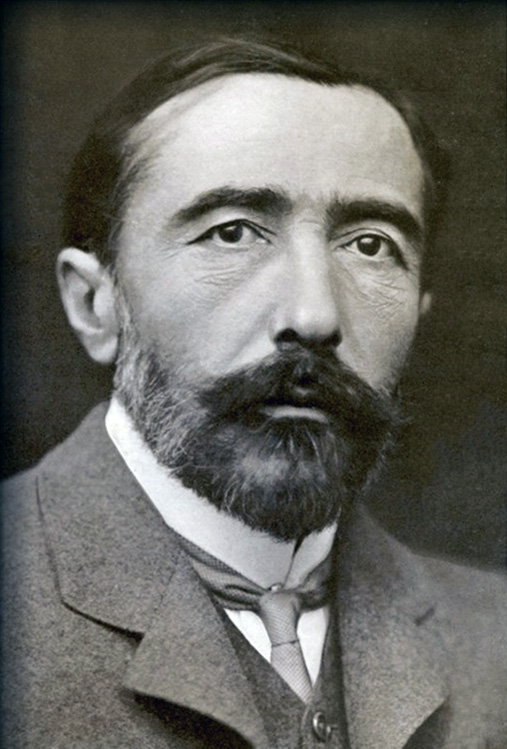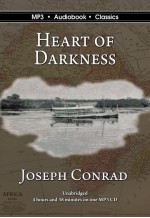Joseph Conrad
|
Joseph Conrad (December 3, 1857 – August 3, 1924) occupies a unique place in the pantheon of great English writers: he was a Polish native who did not learn English until his twenties but became a master stylist who brought a non-English sensibility to English literature. He was born an only child into a noble family in an area of Ukraine that had been a part of the Kingdom of Poland and then ruled by Russia. His family was active in efforts to attain Polish independence; his father was a writer, activist and revolutionary jailed for a time for resistance. Both parents died by the time he was twelve and he went to live with his uncle in Krakow. He was a poor student but well read, partaking of Victor Hugo, Shakespeare, romantic Polish poets, and tales of the sea. He joined the French merchant marine at age 17 and the British merchant marine four years later, serving for fifteen years and achieving the rank of captain. He became a British subject in 1886 but remained a Russian citizen until 1889. He gave up the sea due to poor health at age 36 and pursued his fascination with writing, publishing his first novel in 1895. His stories and novels were set at sea and often dealt with European colonial cultures outside the Anglosphere. He combined elements of nineteenth century realism with modernist anti-heroes and irony delved deeply into the dark psychology of the human spirit dealing with an inscrutable world. He was well received by the critical community and influenced T.S. Eliot, William Faulkner, Graham Greene, among others. |
Heart of Darkness
Aboard a boat anchored on the River Thames, Marlow, the narrator of Heart of Darkness, tells a story..
$9.99


